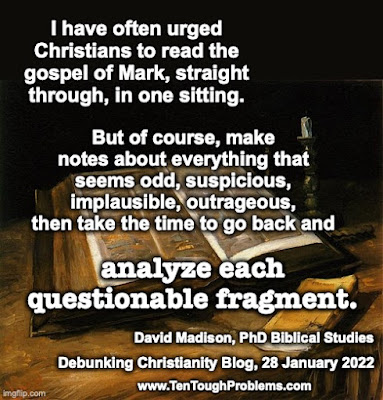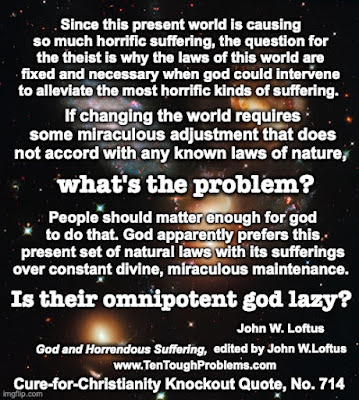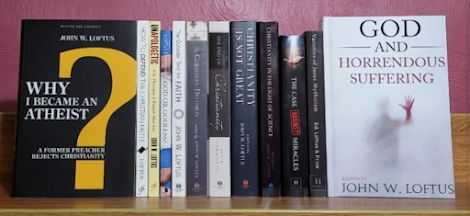Theology was more important than history
It is commonly considered an act of piety to read the Bible cover-to-cover. But once undertaken, this effort sometimes undermines piety—as it did for Mark Twain: “It is not the things which I do not understand in the Bible which trouble me, but the things which I do understand.” Not that I would discourage anyone from reading the Bible, in fact quite the opposite, as I argued in an article here a few weeks ago. Just don’t read it, however. Look at every chapter as an occasion to sharpen critical thinking skills; ask the right questions, e.g., where did this text come from, what was the motivation of the author, does it embody good or bad theology? —but especially, does it really pass muster as “word of a god”? Every Bible chapter should be scrutinized.





